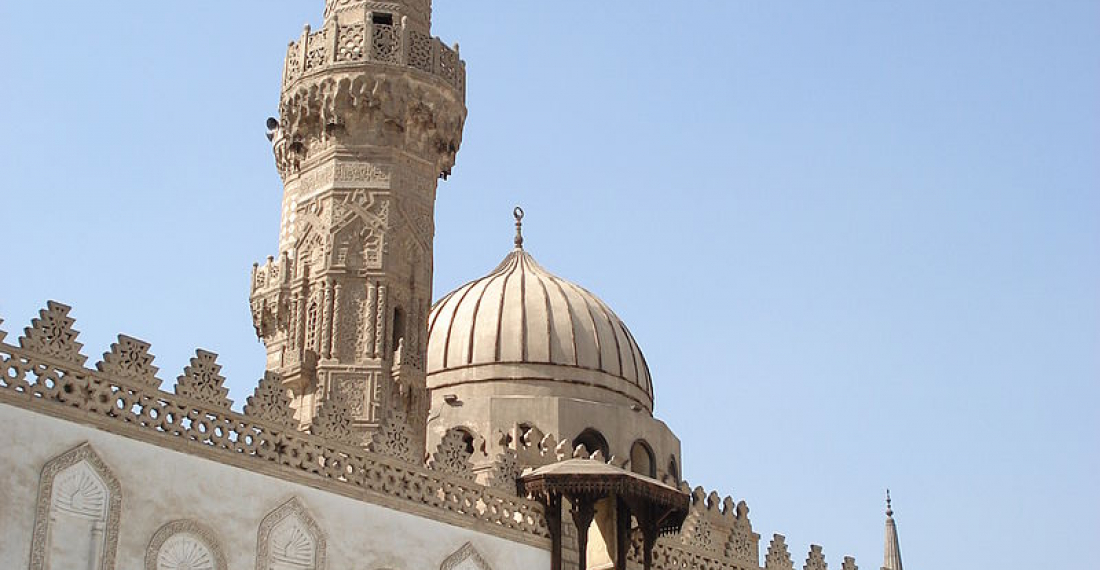The Muslim world’s leading Islamic jurisprudence institution, Al Azhar, has proscribed membership of the Muslim Brotherhood saying that joining it and other terrorist groups is forbidden according to Shariah and that God has forbidden division and disagreement.
The Egyptian newspaper Al-Watan quoted Al-Azhar as saying in its announcement that God forbids people from pursuing any path that distracts them from following the truth, explaining that keeping to the Qur’an and the Sunnah, in accordance with Shariah, was the only way to please God.
“It is clear to the public what these groups have done in distorting some texts, cutting them out of their context, and using them to achieve personal goals or interests and corrupting the land,” the centre said in the fatwa. “Membership in these extremist groups is considered forbidden by Shariah.”
“Joining the terrorist Brotherhood is forbidden by law [and is considered] cooperating in immorality and aggression, for that group violates the law of God and is involved in terrorism,” said Abdullah Al-Najjar, a member of the Islamic Research Academy.
The fatwa is the first of its kind in the history of Al-Azhar, according to Hussein Al-Qadi, a researcher in religious affairs and Islamic movements.
“This fatwa has never been issued from Al-Azhar before. Various statements were issued by Al-Azhar describing the Brotherhood as being outdated. In fact, Imam Muhammad Mustafa Al-Maraghi, reformer and rector of Al-Azhar, demanded the dissolution of the Brotherhood,” Al-Qadi said.
“Al-Azhar Al-Sharif published in 1965 a report refuting Sayed Qutb’s thought and showing that it is perverse. Qutb was a leading member of the Egyptian Muslim Brotherhood in the 1950s and 1960s. The fatwa issued today that prohibits joining the Muslim Brotherhood is consistent with Al-Azhar’s march in this direction,” he added.
“I think that this fatwa is an important step that deserves praise…and greater efforts should be based on this move,” he said. During an interview on the local Sada al-Balad satellite TV channel on Nov. 27, Egyptian Grand Mufti Shawki Allam presented testimonies of Al-Azhar scholars, reading from their books that the Muslim Brotherhood has “a deviant ideology” that led to the killing of innocent people, assassinations, acts of destruction and sedition.
Since it was established in 1928 by its founder, Hassan al Banna, Muslim Brotherhood has been an important feature of Egyptian and Arab religious and political thought, and its relationship with both the Egyptian government, as well as other Arab states governments has been fraught with controversy.
Egypt declared the Brotherhood a terrorist organization and banned all of its activities in 2013. Saudi Arabia declared the Brotherhood a terrorist organization in 2014 and the UAE followed the same year.
On November 10, for the first time in its history, the Saudi Council of Senior Scholars declared the Muslim Brotherhood a “deviant terrorist group” that does not represent Islam and hides under the cover of religion while engaging in practices that contradict Islam while inciting division, discord, violence and terrorism. The council said that the group’s goal is to rise to power, stir up strife and divide the nation.
In the wake of the Saudi decision, the UAE quickly also classified the group as a terrorist organization in a declaration on 23 November by the Fatwa Council that read, “Every group or organization that seeks sedition and practices or incites violence is a terrorist organization regardless of its name or advocacy.”
On its part, on November 12, the Muslim Brotherhood said it was “very far from violence, terrorism and dividing the nation", and since its inception it has been an advocacy group.
source: commonspace.eu with Al Watan (Cairo), Arab News (Jeddah) and Al Monitor (Washington DC)
photo: The minaret of the Mosque at the Al Azhar complex in Cairo. (archive picture)






